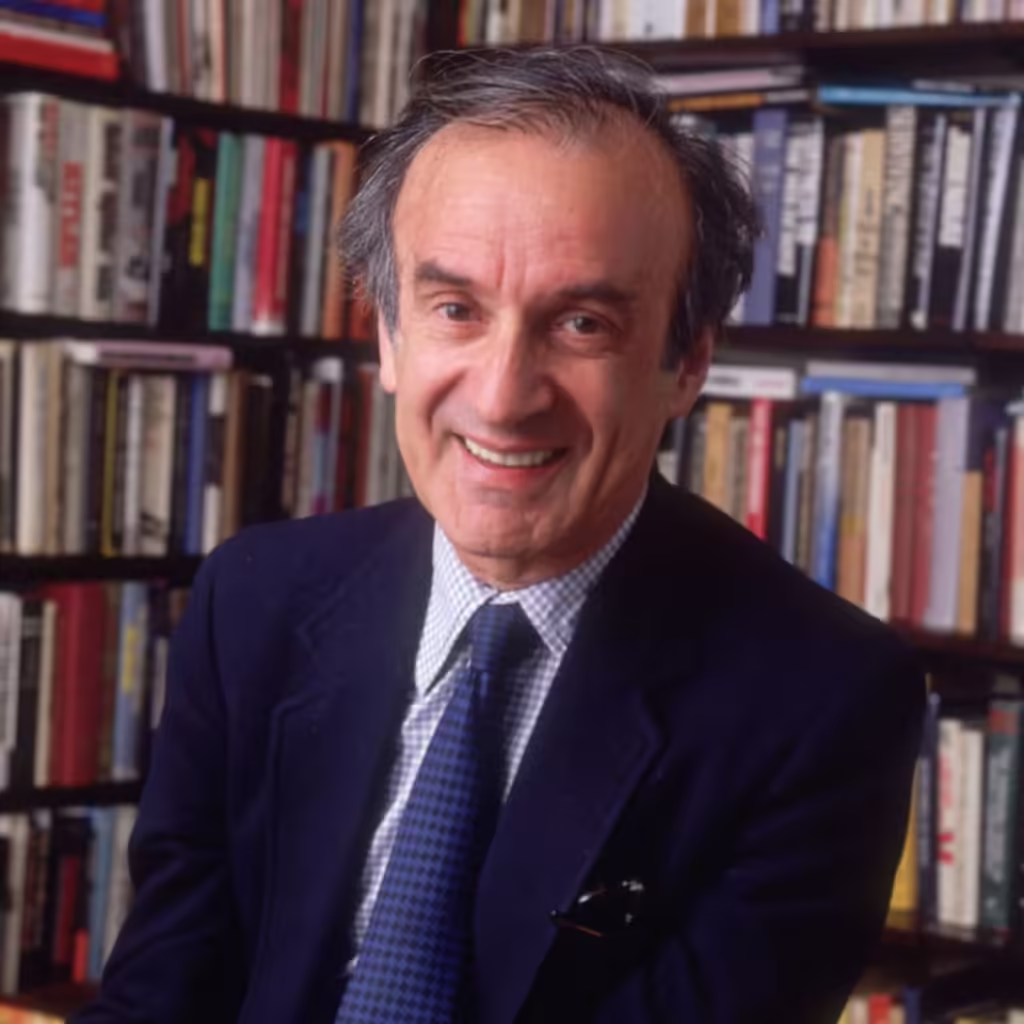
Table of Contents
Who Was Elie Wiesel?
Elie Wiesel, born on September 30, 1928, in Sighet, Romania, was a prominent Jewish writer, Holocaust survivor, and human rights activist. His life and work left a profound impact on the world, particularly through his internationally renowned memoir Night, which chronicles his harrowing experiences in Nazi concentration camps during World War II. In addition to his writing, Wiesel became a powerful voice for justice and peace, speaking out against persecution and inhumanity worldwide. He passed away on July 2, 2016, at the age of 87, leaving behind a legacy of resilience and advocacy for human dignity.
Family & Early Life
Elie Wiesel, originally named Eliezer Wiesel, was born to Shlomo and Sarah Wiesel on September 30, 1928, in the small town of Sighet, Romania. He grew up in a deeply religious household with three sisters, where he was influenced by the traditional spiritual teachings of his mother and grandfather, alongside the more progressive expressions of Judaism embraced by his father. Wiesel’s early education was focused on religious studies, which he pursued at a nearby yeshiva, shaping his spiritual identity and worldview before the onset of World War II and the devastation it would bring to his life.
Surviving the Holocaust
In 1940, Hungary annexed Sighet, forcing Jewish families, including the Wiesels, to live in ghettos. In May 1944, with Hungary’s consent, Nazi Germany began the deportation of Sighet’s Jewish population to the Auschwitz-Birkenau concentration camp in Nazi-occupied Poland. At the age of 15, Elie Wiesel and his family were among those sent to Auschwitz. This tragic event was part of the Holocaust, during which more than 6 million Jews were murdered. Wiesel and his father were later transferred to Buna Werke, a labor camp under Auschwitz III-Monowitz, where they endured brutal, inhumane conditions. After being relocated to other Nazi camps, they were force-marched to Buchenwald, where his father died following an assault by a German soldier, just three months before the camp’s liberation. Wiesel’s mother and younger sister, Tzipora, also perished in the Holocaust. Elie was liberated from Buchenwald in 1945, and of his immediate family, only he and his older sisters Beatrice and Hilda survived.
Night
Following the war, Wiesel studied at the Sorbonne in France from 1948 to 1951, pursuing a career in journalism and writing for both French and Israeli publications. Encouraged by his friend, the Nobel Laureate François Mauriac, Wiesel began to write about his experiences in the concentration camps. His first memoir, And the World Would Remain Silent, was published in Yiddish in 1956, before being shortened and published in French as La Nuit. In 1960, it was translated into English as Night. The book became an internationally acclaimed bestseller, widely regarded as a seminal work on the horrors of the Holocaust.
Wiesel’s haunting words in Night resonate powerfully: “Never shall I forget that night, the first night in camp, which has turned my life into one long night, seven times cursed and seven times sealed.” He described the unimaginable suffering, the loss of faith, and the destruction of his very soul: “Never shall I forget those flames which consumed my faith forever… Never shall I forget these things, even if I am condemned to live long as God himself.”
Night was followed by Dawn (1961) and Day (1962), completing a trilogy that explored the depths of human suffering and the destructive nature of cruelty.
Writer and World Activist
Wiesel relocated to New York in 1955 and became a U.S. citizen in 1963. He married Marion Rose, a fellow Holocaust survivor, in Jerusalem in 1969. Over the years, Wiesel authored numerous works, including novels such as Town of Luck (1962), The Gates of the Forest (1966), and The Oath (1973), as well as nonfiction books like Souls on Fire (1982) and his memoir All Rivers Run to the Sea (1995).
A passionate advocate for human rights, Wiesel spoke out against injustices in places like South Africa, Bosnia, Cambodia, and Rwanda. In 1978, President Jimmy Carter appointed him chair of the President’s Commission on the Holocaust. Throughout his life, he was honored with numerous accolades, including the U.S. Presidential Medal of Freedom and the French Legion of Honor’s Grand Croix.
Teaching and Legacy
In addition to his literary and humanitarian efforts, Wiesel was also a dedicated teacher. He served as the Andrew W. Mellon Professor in the Humanities at Boston University, taught Judaic studies at the City University of New York, and held a visiting scholar position at Yale University.
In 1986, Wiesel was awarded the Nobel Peace Prize. The Nobel committee described him as “a messenger to mankind” whose message was one of peace, atonement, and human dignity. His unwavering belief in the triumph of good over evil was central to his life’s work.
Together with his wife, Marion, Wiesel founded the Elie Wiesel Foundation for Humanity, aimed at combating indifference, intolerance, and injustice. They had one son, Elisha.
Death
Elie Wiesel passed away on July 2, 2016, at the age of 87 in his Manhattan home, leaving behind a profound legacy as a writer, educator, and advocate for human rights.
